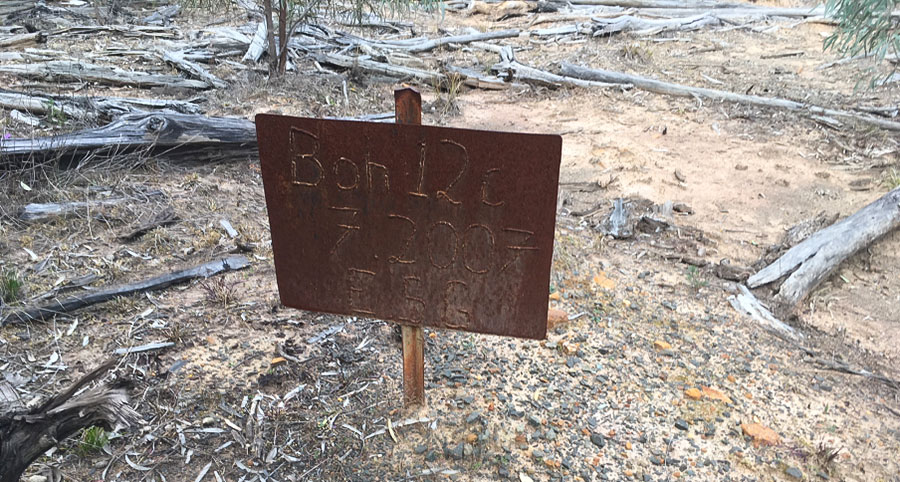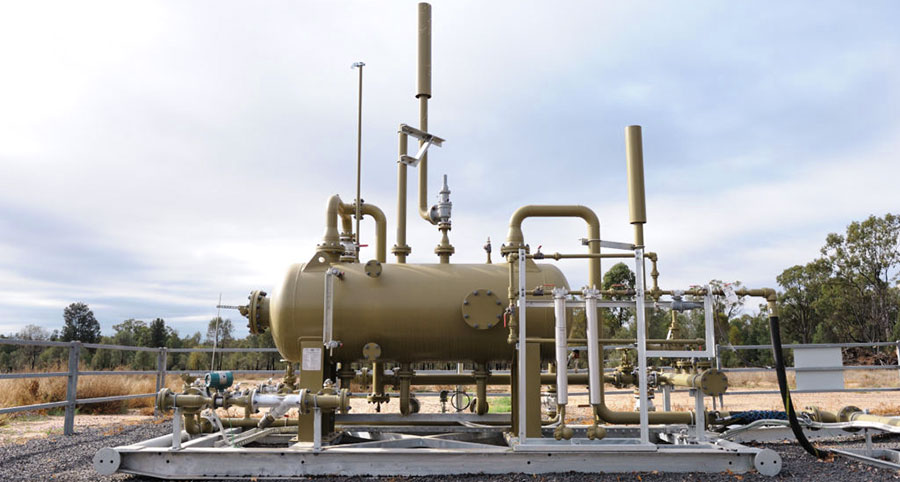CSIRO research investigating the decommissioning of onshore gas assets
Australia’s leading science agency, CSIRO, is working with community, government and industry to improve understanding about the decommissioning processes for onshore coal seam gas (CSG) and shale gas wells.
Regional community representatives in Queensland, New South Wales and the Northern Territory have asked the CSIRO to consider a range of issues associated with decommissioning gas wells.
Chief among their concerns was the potential for decommissioned wells to leak methane or to provide unintended connection between aquifers. There was also interest in long-term management and monitoring options.

A marker for an abandoned gas well in the Pilliga Forest, NSW.
CSIRO scientists have completed three research projects exploring various aspects of decommissioned onshore gas wells, including long-term monitoring, materials and techniques for improving structural integrity, and community perspectives on decommissioning processes for CSG wells in Queensland and New South Wales.
Conducted through the CSIRO’s Gas Industry Social and Environmental Research Alliance (GISERA), the research shows that the best outcomes for decommissioned wells occur when planning for decommissioning is part of up-front design and ongoing operations.

A CSG well head and separator. CSIRO research shows that the best outcomes for decommissioned wells occur when planning for decommissioning is part of up-front design and ongoing operations.
CSIRO has also approved further research into decommissioning in the Northern Territory. The Beetaloo basin shale long-term competency after decommissioning research project will investigate the ability of shale formations in the Beetaloo Basin in the Northern Territory to “self seal” and create a natural barrier to block movement of hydrocarbons.
Who are the GasFields Commission Queensland?
Established as an independent statutory body in 2013, the Commission’s purpose is to manage and improve the sustainable coexistence of landholders, regional communities and the onshore gas industry in Queensland. The Commission manages sustainable coexistence in petroleum and gas producing regions of Queensland, and will continue to do so as the industry expands into new and emerging basins.
Our vision is to achieve thriving communities in areas of gas development that are free from discord and supported by well-informed, respectful and balanced stakeholder relationships.
One way the Commission is endeavouring to realise this vision is by providing transparency and independent assurances that the onshore gas industry is appropriately regulated and held to account when needed. This in turn will help cultivate sustainable coexistence, whilst ensuring community and landholder confidence in the regulators and gas industry increases.
Drawing on its wealth of experience in the development of the gas industry and by collaborating with other relevant entities, the Commission provides a range of support to communities and landholders, primarily through education and engagement. These education and engagement activities occur with individual landholders via Commission facilitated webinars, information sessions, publications (The Gas Guide, Shared Landscapes Reports), face-to-face meetings and public workshops.
It should be noted that the Commission does not engage in individual negotiations between landholders and gas companies, but rather provides communities and landholders with the information and support they need to make informed decisions and achieve good outcomes.
![]()
![]()
![]()
![]()
![]()


